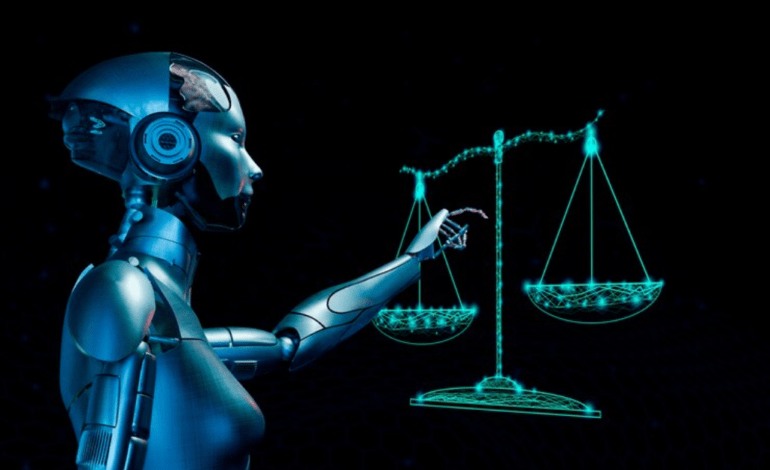
The Role Of AI In the Criminal Justice System
For a while now, artificial intelligence (AI) has been used extensively in the criminal justice system and will only get bigger. AI will have a tremendous impact on the criminal justice system in 2024, having a major impact on the judicial and penitentiary systems, crime prevention and monitoring, and many other criminal justice practices.
What is Artificial Intelligence (AI)?
The influence of AI on criminal justice and public safety is evident in various areas, including traffic safety systems, crime forecasts, criminal pattern detection, and more. AI’s application in criminal justice affects people even if they never plan to interact with the system.
How does AI contribute to solving crimes?
Image and Video Analysis
Crimes are common in society. By gathering data on individuals, things, and behaviors to enhance criminal investigations through video and image analysis, artificial intelligence (AI) can help solve or lessen crime in the modern world.
The criminal justice and law enforcement sectors utilize this technology, which necessitates a large financial commitment and the hiring of subject-matter experts.
Deoxyribonucleic Acid (DNA) Analysis
The utilization of artificial intelligence can extend to the investigation of criminal cases through the analysis of DNA-related criminal activity. Biological elements, like saliva, blood, semen, and skin cells, can be spread during a crime through interactions with individuals and objects. Since the introduction of DNA evidence in forensics in 1986.
Crime investigations have greatly benefited from enhanced visibility and accessibility. AI technology is improving DNA processing (Rigano, 2018).
Risk Assessment Tools
To evaluate and estimate the prospective suspect’s level of threat, risk assessment tools are employed. RAIs, or Risk Assessment Instruments, employ AI to assist in the prosecution process and assess the likelihood that a criminal will commit the same offense again.
How AI Is Helping Police Departments
According to Armando Aguilar, the Assistant Police Chief of Miami, AI has significantly enhanced the safety of the city, surpassing all historical records, despite concerns.
The department employs artificial intelligence (AI), according to Aguilar, in a variety of methods, such as facial recognition, license plate scanning, social media threat monitoring, and the use of ballistic data to “connect the shots” between shootings.
The Future of Artificial Intelligence in Criminal Justice
AI’s application in criminal justice is not going to slow down. AI will probably influence how people engage with the criminal justice system in the twenty-first century by developing new tools and enhancing those that already exist.
Drones and satellite imaging’s automated object and activity detection capabilities will have a big impact on law enforcement’s capacity to identify and stop crime through movement and pattern analysis. The technology known as integrated facial recognition, which can identify people from many cameras in different locations, will help detectives identify suspects.
AI potential hazards in criminal justice
In many of its uses, artificial intelligence is still an emerging technology. Then, criminal justice, and especially law enforcement, will have to evaluate the application of AI not only in the context of basic human rights principles like nondiscrimination and privacy but also in light of the increasing perception that AI algorithms are more intelligent and objective than people when in reality they are only capable of expressing human error.
Here are some benefits of using AI in the criminal justice system:
Enhanced effectiveness: AI can automate human-performed jobs, freeing up resources for other important duties.
Enhanced precision: Artificial intelligence (AI) can analyze data more rapidly and correctly than humans, which can help in decision-making.
“Predictive” policing and “prediction” systems for crimes
Authorities in charge of criminal justice and law enforcement are increasingly profiling individuals and “predicting” whether they will commit a crime by employing artificial intelligence (AI), big data, and algorithms.
The utilization of criminal “prediction” systems and “predictive” policing has frequently demonstrated a tendency to perpetuate discrimination and compromise fundamental rights, including the presumption of innocence and the right to a fair trial.
As a result, there is an over-policing of Black people Roma, and other marginalized ethnic groups in Europe, along with a disproportionate amount of detention and imprisonment.
Conclusion
The criminal justice system could transform thanks to artificial intelligence (AI), which would improve investigation, decision-making, and crime prevention. Artificial intelligence has a huge potential to increase the effectiveness and equity of the legal system in several ways, including crime prediction and prevention, forensic analysis, facial recognition, and sentencing recommendations.
Resolving issues like bias, and privacy problems, and upholding responsibility are necessary for the ethical application of AI in the criminal justice system. We can use AI to make the criminal justice system more equitable and effective by weighing the advantages against any possible hazards.